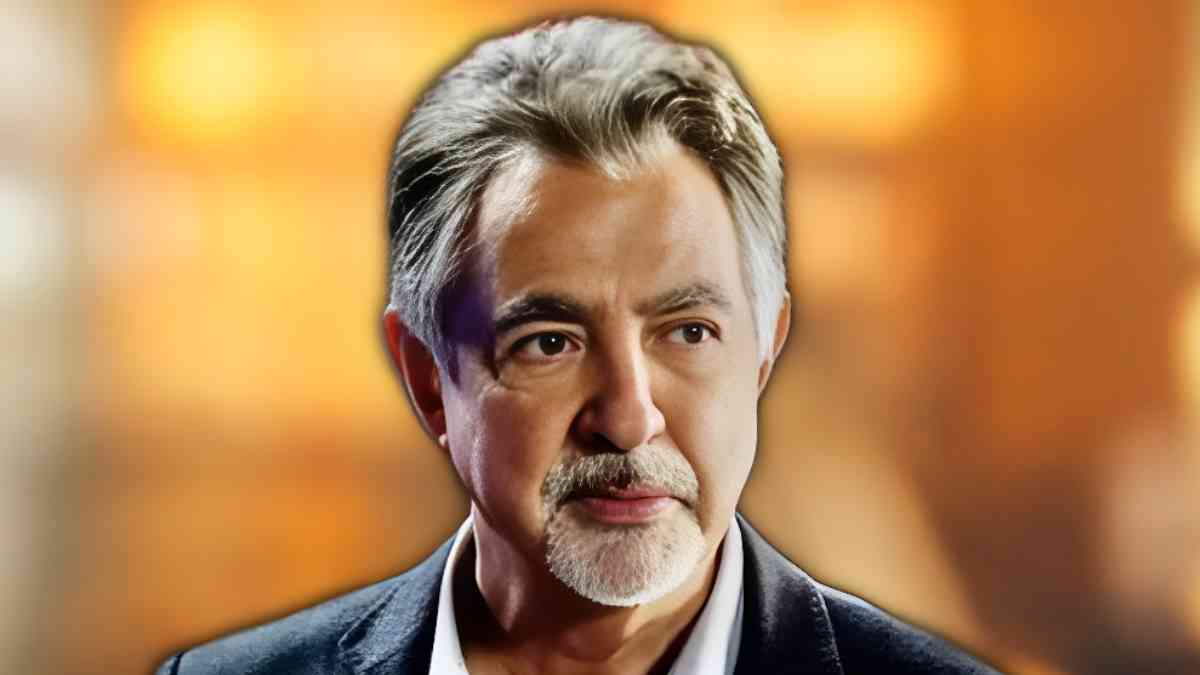David Rossi: Profiling Legend, Mentor, and Beating Heart of Criminal Minds

Nearly two decades after his on-screen debut, David Rossi remains one of television’s most compelling crime-fighters. Part philosopher, part warrior, and part grief-scarred sage, Rossi anchors the Criminal Minds universe through every incarnation—from the original CBS run to the current Paramount+ revival, Criminal Minds: Evolution. Fans return to him because he embodies endurance: a Marine who never stops serving, a profiler who never stops learning, and a friend who never stops caring. That mix of resolve and humanity keeps Rossi relevant in an era when true-crime drama is more crowded—and more sophisticated—than ever.
Early Life on Long Island and the Call to Serve
Born in Commack, Long Island, on May 9 1956, David Stephen Rossi grew up with one foot in blue-collar neighborhoods and the other in the shadow of organized crime. Childhood pal Ray Finnegan drifted toward the mafia, but Rossi chose honor over easy money and enlisted in the U.S. Marine Corps straight out of high school. The decision forged his lifelong identity: discipline, punctuality, and an unshakeable loyalty to “the guy next to you.”
Vietnam and the Making of a Leader
Rossi served in Vietnam under Sergeant Harrison Scott—a mentor who demanded integrity and taught the young Marine to “do the hard right instead of the easy wrong.” Combat honed Rossi’s instinct for reading human behavior under extreme stress, a skill that would later define his FBI career. By the time he left the Corps, he held the rank of Sergeant Major, decorated with a Purple Heart for wounds sustained in country.
Founding the Behavioral Analysis Unit
After earning degrees in criminology and psychology on the G.I. Bill, Rossi joined the FBI and became one of three architects of what would become the Behavioral Analysis Unit (BAU). His Marine-style rigor shaped BAU protocols: rapid scene walkthroughs, structured interviews, and the now-standard “Victimology first” mantra. Colleagues recall that even in the early days Rossi carried a slim leather notebook, jotting stray observations that often cracked open a profile hours later.
Reputation for Hostage Negotiation
Rossi’s calm baritone and credibility with unstable suspects made him the Bureau’s go-to hostage negotiator through the late 1980s. A career-defining moment came when he defused a standoff at Dulles International Airport; the bureau credits that talk-down with saving twelve civilian lives and two fellow agents.
Semi-Retirement and Life as a Best-Selling Author
By the mid-1990s, burnout and survivor’s guilt pushed Rossi to step away from full-time profiling. He turned his case files into bestselling books—Path of Predators and Inside the Monster—and filled lecture halls across the country. For a time, the public image of “David Rossi, true-crime author” eclipsed the quieter man who still kept track of unsolved victim notifications in his Rolodex.
Why He Chose to Return
Rossi’s conscience refused to rest. In 2007 he re-entered the BAU (Season 3’s “About Face”) after learning that one of his cold cases—parents slain in front of their three children—had never been closed. Drivers of that decision were equal parts guilt and unfinished duty, showing viewers that retirement cannot silence a born protector.
Profiling Philosophy and Signature Techniques
Rossi believes motive is “the purest window into a killer’s soul,” often pressuring the team to understand why before chasing how. Colleagues sometimes bristle at his bluntness—he tells Penelope Garcia her victim empathy “can’t cloud data” yet later thanks her for “seeing the whole human, not just the horror.” His favorite on-camera move is the circle-back: walking crime scenes in reverse order to trigger new perspectives.
-
Old-School Tactics – Rossi still sketches crime-scene layouts by hand and quotes Shakespeare during profile briefings.
-
Rapid Rapport – Years of negotiations taught him to mirror a suspect’s speech tempo, lowering defenses in interrogation.
-
Marine Precision – Cases close more quickly when someone demands clean timelines and uncompromising autopsy reviews.
Complex Personal Life: Love, Loss, and Resilience
Few TV characters carry a heavier romantic résumé. Rossi has divorced three times—twice from the same woman—and fathered two children he did not meet until adulthood. The tragedies never feel soap-operatic because the show roots them in service-induced sacrifice.
The Joy of Finding Joy
Season 10 introduced journalist Joy Struthers, Rossi’s daughter with second wife Hayden Montgomery. Their reconciliation story arc showed Rossi at his most vulnerable, writing longhand letters and mastering smartphone emojis to bond with a daughter raised without him.
Krystall Richards: A Love Too Brief
In Season 14 Rossi remarried former flame Krystall Richards, only to lose her off-screen a year before Criminal Minds: Evolution begins. The reboot reveals that Krystall succumbed to an aggressive, undisclosed illness, plunging Rossi into grief-driven insomnia and near-obsession with work. Fans watched a once-unflappable agent suffer panic attacks and guilt hallucinations—an honest depiction of late-life bereavement.
Mentor, Leader, and Surrogate Father
When Hotch left the BAU, Rossi stepped up as de facto patriarch, balancing Emily Prentiss’ operational command with deeper emotional coaching. He teaches Spencer Reid chess openings that double as life lessons (“Control the center, control the outcome”) and reminds JJ Jareau that parenting and profiling both rely on active listening. Over 18 seasons, Rossi quietly funds team wedding gifts, arranges Marine funeral honors for victims’ families, and stocks Garcia’s office with her favorite ethically sourced chocolate.
Trauma and Growth in Criminal Minds: Evolution
The Paramount+ revival finds Rossi at age 69, still on active duty but battling nightmares after Krystall’s death. Showrunner Erica Messer calls Season 18 “a meditation on whether old warriors can find new hope amid digital-era evil.” Rossi’s arc forces him to collaborate with nemesis‐turned-informer Elias Voit while deciphering Shakespeare-themed murders. The tension between grief and duty drives some of Joe Mantegna’s finest performances, proving the character can evolve without losing his core identity.
Continuing Into Seasons 18 and 19
Paramount+ renewed the series through Season 19 and began filming in May 2025, with cast photos confirming Rossi’s return alongside Prentiss, Garcia, and Reid’s cameo. Production scoops hint that Rossi’s late-career legacy will center on whether he can train a new wave of profilers to outthink AI-aided serial conspiracies.
Ten Must-Watch Rossi Episodes
-
“About Face” (3×06) – Rossi’s comeback and first case in a decade.
-
“Damaged” (3×14) – Closure on the parents-murder cold case.
-
“The Fallen” (8×07) – Vietnam flashbacks and reunion with Sgt. Harrison Scott.
-
“The Longest Night” (6×01) – Rossi holds a family hostage situation together.
-
“Target Rich” (11×07) – Introduction to daughter Joy.
-
“Truth or Dare” (14×15) – Wedding to Krystall Richards.
-
“Epitaph” (16×04, Evolution) – Rossi’s grief spirals into hallucinations.
-
“Chimera” (17×07, Evolution) – Rossi leads digital forensics against deep-fake predators.
-
“The Tempest” (18×01, Evolution) – Shakespearean serial arc begins.
-
“Inheritance” (projected 19×10) – Rumored to explore Rossi’s will and succession plans.
Each episode showcases a different facet—tactician, empath, survivor—making them essential for newcomers and veteran fans alike.
Cultural Impact and Fan Reception
Online forums once criticized Rossi’s brash entrance for “replacing Gideon,” but sentiment flipped within a season. Fans cite his gallows humor (“Enjoy the tuna salad; it pairs nicely with justice”) and father-figure warmth as series glue. Merch sales—Rossi quote mugs and Marine challenge coins—spike whenever Evolution drops a new arc. His character’s durability also paved the way for older leads in procedural TV, proving that action storytelling isn’t age-bound.
Why David Rossi Continues to Resonate in 2025
-
Relatability: Viewers recognize careers that refuse tidy retirement.
-
Balance: He models healthy mentorship without sacrificing competence.
-
Authenticity: Military veterans praise Rossi for respecting service realities, from PTSD triggers to folded-flag protocol.
-
Growth: Storylines confront real-world issues—pandemic grief, AI surveillance—through an aging hero’s eyes.
Conclusion – The Ever-Evolving Profile of a TV Icon
David Rossi started as a stopgap replacement and evolved into the soul of Criminal Minds. His journey—from Long Island kid to Marine, from profiler to mentor, from widower to renewed warrior—maps the human capacity for reinvention. As new seasons dive into darker cyber-frontiers, Rossi’s steadfast presence reminds audiences that experience, empathy, and a well-timed Italian proverb can still outmaneuver the worst in humanity. The profile, it seems, is never complete—and neither is David Rossi’s power to captivate us.



